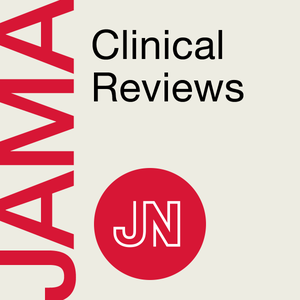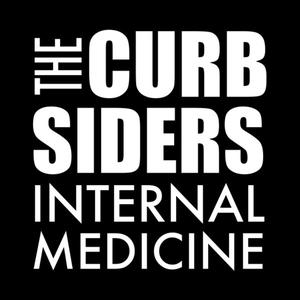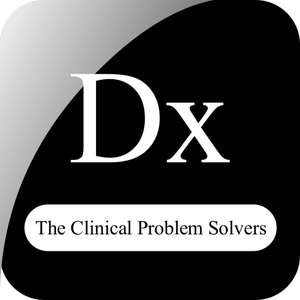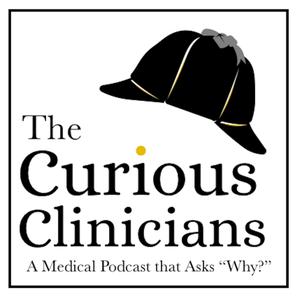
GI Insights
ReachMD
- MCB-PN in Practice: Key Considerations for Patient Selection and DeliveryHost: Charles Turck, PharmD, BCPS, BCCCP
Guest: Phil Ayers, PharmD, BCNSP, FMSHP, FASHP
When considering multi-chamber bag parenteral nutrition (MCB-PN), there are a variety of factors to consider, including the patients’ hemodynamic stability and nutrient needs. After a patient is selected, their whole care team must be aware of common risks and challenges to ensure safe and effective delivery. Dr. Charles Turck is joined by Dr. Phil Ayers to discuss appropriate patient selection based on recent updates to ASPEN guidelines and safety considerations. Dr. Ayers is a Clinical Associate Professor at the University of Mississippi School of Pharmacy and the Chief of Clinical Pharmacy Services in the Department of Pharmacy at Baptist Medical Center in Jackson, MI.
20 November 2024, 5:00 am - Mixed vs. Pure Soybean Oil Lipid Emulsions: How to Select and Monitor PatientsHost: Charles Turck, PharmD, BCPS, BCCCP
Guest: Phil Ayers, PharmD, BCNSP, FMSHP, FASHP
Though 100% soybean oil was once the standard for lipid emulsions in parenteral nutrition, mixed lipid emulsions have become more popular over the last decade. But there are a variety of patient-specific factors to consider before determining which type of lipid emulsion is appropriate. Dr. Charles Turck sits down with Dr. Phil Ayers to compare the available options and recommend strategies for selecting and monitoring patients. Dr. Ayers is a Clinical Associate Professor at the University of Mississippi School of Pharmacy and the Chief of Clinical Pharmacy Services in the Department of Pharmacy at Baptist Medical Center in Jackson.
20 November 2024, 5:00 am - The Role of Neuromodulators in Treating IBSHost: Peter Buch, MD, FACG, AGAF, FACP
Guest: Douglas Drossman, MD
While neuromodulators are primarily used to treat psychiatric disorders, they can also help normalize symptoms of irritable bowel syndrome by targeting the gut-brain axis. In fact, about half of all patients with IBS have the potential to benefit from neuromodulators. Dr. Douglass Drossman joins Dr. Peter Buch to discuss his research on how various neuromodulators can provide relief for IBS patients. Dr. Drossman is the President of the Drossman Center of Education and Practice of Psychosocial Care and Drossman Consulting as well as a Professor Emeritus of Medicine and Psychiatry at the University of North Carolina School of Medicine.
12 November 2024, 5:00 am - Developments in Colorectal Cancer Screening: Cell-Free DNA Blood TestingHost: Peter Buch, MD, FACG, AGAF, FACP
Guest: William Grady, MD
While colorectal cancer is the second most common cause of cancer deaths, only a third of people between the ages of 45 and 75 are compliant with screening recommendations. However, cell-free DNA blood-based tests could become a new option for colorectal cancer screening. Dr. Peter Buch sits down with GI expert Dr. William Grady to discuss the efficacy of this new test and where it is in the FDA approval process.
30 October 2024, 4:00 am - Decoding Bloating: Clinical Assessment and Therapeutic ApproachesHost: Peter Buch, MD, FACG, AGAF, FACP
Guest: Kyle Staller, MD, MPH
Join Dr. Peter Buch as he speaks with Dr. Kyle Staller, Director of the Gastrointestinal Motility Laboratory at Mass General and Assistant Professor of Medicine at Harvard Medical School, about uncovering the cause of a patient’s bloating and determining how to manage it.
28 October 2024, 4:00 am - Grappling with Gastroparesis: Key Management StrategiesHost: Peter Buch, MD, FACG, AGAF, FACP
Guest: Kyle Staller, MD, MPH
The complexities of gastroparesis can make the disease difficult to diagnose and treat. To help us overcome these challenges, Dr. Kyle Staller joins Dr. Peter Buch to share his preferred strategies for managing patients with gastroparesis. Not only is Dr. Staller an Assistant Professor of Medicine at Harvard University, but he’s also the Director of the GI Motility Lab at the Massachusetts General Hospital.
28 October 2024, 4:00 am - Managing Pouchitis: A Review of the Updated AGA GuidelinesHost: Peter Buch, MD, FACG, AGAF, FACP
Guest: Edward L. Barnes, MD, MPH
Tune in to learn about the newest clinical practice recommendations for pouchitis and inflammatory pouch disorders. Tune in to learn about the newest clinical practice recommendations for pouchitis and inflammatory pouch disorders. Tune in to learn about the newest clinical practice recommendations for pouchitis and inflammatory pouch disorders.
18 October 2024, 4:00 am - Recognizing and Addressing Burnout Among GI ProvidersHost: Peter Buch, MD, FACG, AGAF, FACP
Guest: Brian E. Lacy, MD, PhD
About 50 percent of gastrointestinal providers are experiencing some degree of burnout, which can lead to a variety of personal and professional challenges. Joining Dr. Peter Buch to discuss the signs of burnout and what you can do to mitigate them is Dr. Brian Lacy, lead author of the “Burnout in Gastrointestinal Providers” article published in the American Journal of Gastroenterology in 2024.
18 October 2024, 4:00 am - SIBO Solutions: A Guide to Recognition, Diagnosis, and TreatmentHost: Peter Buch, MD, FACG, AGAF, FACP
Guest: Eamonn Quigley, MD
Small intestinal bacterial overgrowth (SIBO) is often overdiagnosed due to misconceptions about symptoms and inaccurate tests. Join Dr. Peter Buch and Dr. Eamonn Quigley as they explore considerations for knowing when and how to diagnose and treat SIBO. Dr. Quigley is the Chief of Gastroenterology and Hepatology and the Co-Director of the Lynda K. and David M. Underwood Center for Digestive Disorders at Houston Methodist Hospital.
18 October 2024, 4:00 am - How CRC Screenings Could Help Reduce Colonoscopy Backlog: A DDW PosterHost: Jennifer Caudle, DO
Guest: A. Mark Fendrick, MD
Approximately 40 percent of the eligible U.S. population are not up to date with their colorectal cancer (CRC) screenings, which inspired this study that was presented at Digestive Disease Week (DDW) 2024 to help eliminate the colonoscopy backlog with stool-based CRC screening options. To learn the details of this study and how we can incorporate the findings into practice, join Dr. Jennifer Caudle as she speaks with Dr. Mark Fendrick, Professor of Internal Medicine in the School of Medicine and Professor of Health Management and Policy in the School of Public Health at the University of Michigan.
30 September 2024, 4:00 am - The Impacts of Analgesics in Patients with CirrhosisHost: Peter Buch, MD, FACG, AGAF, FACP
Guest: Naga Chalasani, MD, FAASLD
It’s recommended that if patients with cirrhosis are using acetaminophen long-term, it should be a limited dosage. But should we be avoiding nonsteroidals in patients with decompensation cirrhosis? To walk through the impacts of analgesics in patients with cirrhosis, join Dr. Peter Buch as he speaks with Dr. Naga Chalasani, David W. Crabb Professor of Gastroenterology and Hepatology at Indiana University School of Medicine.
3 September 2024, 4:00 am - More Episodes? Get the App
Your feedback is valuable to us. Should you encounter any bugs, glitches, lack of functionality or other problems, please email us on [email protected] or join Moon.FM Telegram Group where you can talk directly to the dev team who are happy to answer any queries.
 JAMA Clinical Reviews
JAMA Clinical Reviews
 The Curbsiders Internal Medicine Podcast
The Curbsiders Internal Medicine Podcast
 Core IM | Internal Medicine Podcast
Core IM | Internal Medicine Podcast
 Annals On Call Podcast
Annals On Call Podcast
 The Clinical Problem Solvers
The Clinical Problem Solvers
 The Curious Clinicians
The Curious Clinicians